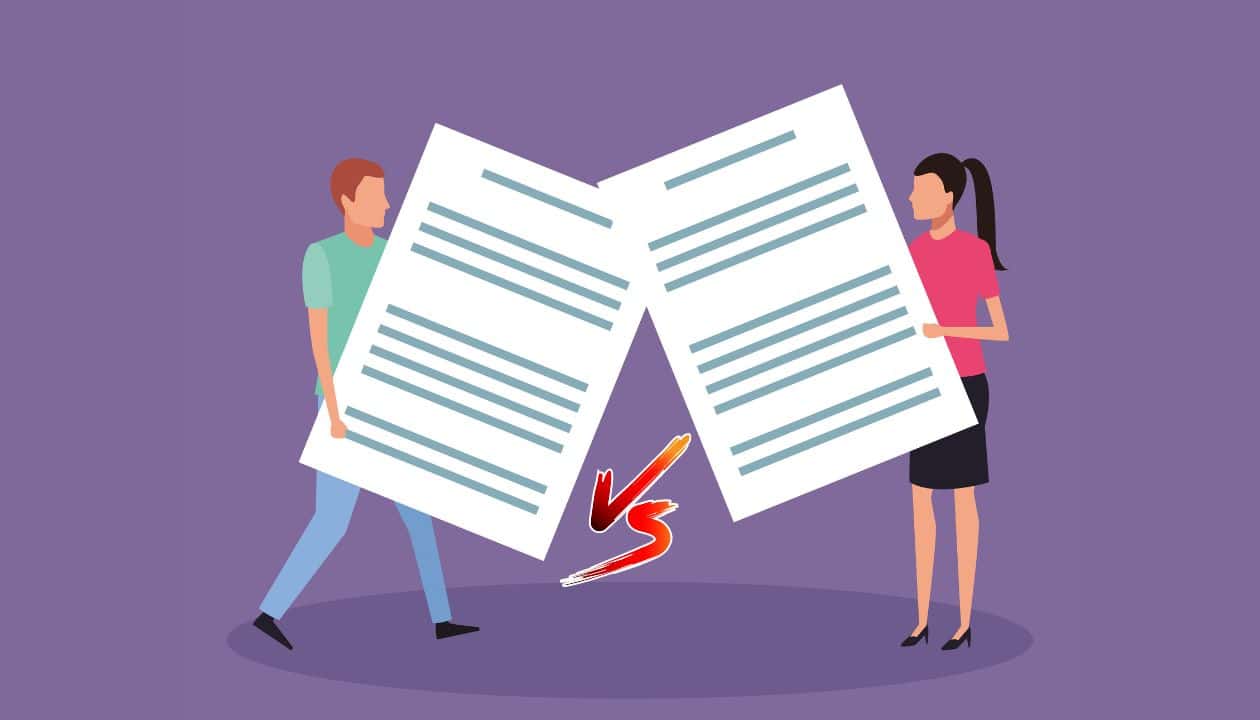When applying for a job, two common phrases are “letter of interest” and “cover letter.” Both documents are important in the job application process but are not the same.
It’s important to understand the differences between a letter of interest and a cover letter, as using the right one could ensure your chances of landing the job.
This article, “Letter of Interest vs Cover Letter”, will explain the differences between a letter of interest and a cover letter. You will understand here the purpose of each document and the differences between them by the end of this article.

Cover Letter vs Letter of Interest
| Points | Cover Letter | Letter of Interest |
| Purpose | Accompanies a job application | Expresses interest in a company or organization |
| Context of use | Responding to a specific job posting | Inquiring about job opportunities, even if they are not currently available |
| Content | Highlight relevant skills and experience for a specific position | Showcase your qualifications and experience in a particular field |
| Structure | Typically includes three paragraphs: introduction, body, and closing | Typically includes four paragraphs: introduction, body, closing, and call to action |
| When to use | When applying for a specific job | When you want to express your interest in working for a company or organization, even if they are not currently hiring |
What is a Cover Letter?
A cover letter is a one-page document you can include along with your resume when applying for a job. Its purpose is to introduce yourself to the employer and to highlight your skills and qualifications for the position you are applying for.
The cover letter is typically the first document that the employer will read, so it is essential to make a good impression.
Structure of a Cover Letter
The structure of a cover letter typically consists of three paragraphs: an introduction, a body, and a closing. So start writing a cover letter with this structure:
Introduction:
In the introduction, you should start by addressing the person who will be reading your letter, for example, “the hiring manager”.
Then, mention the position you are applying for and how you came to know about it. You can also add a brief sentence about why you are interested in the position.
Also Read:
Body:
The body of the cover letter should highlight the relevant skills and experience that make you the right fit for the position. Use keywords from the job description and explain how your skills match the requirements.
You can also provide specific examples of your past experiences that are relevant to the position. You can also mention your achievements in your previous roles that showcase your abilities.
Closing:
The closing should restate your interest in the position and thank the employer for considering your application. Remember to include your contact information, like your phone number and email address, so the employer can easily contact you.
You can also mention that you look forward to the opportunity to further discuss your qualifications in an interview.
Also Read: How To End A Cover Letter
Tips for Writing an Effective Cover Letter:
- Address the letter to a specific person if possible.
- Keep it concise and focused on your relevant skills and experience.
- Use keywords from the job description.
- Proofread for spelling and grammar errors.
- Avoid using generic phrases.
- Be professional but also show your personality and enthusiasm for the position.
Template for a Cover Letter:
[Your Name] [Your Address] [City, State ZIP Code] [Email Address] [Phone Number] [Date] [Employer’s Name] [Employer’s Address] [City, State ZIP Code]Dear Hiring Manager,
I am excited to apply for the [position name] position at [company name]. As an experienced [insert relevant skill or job title], I am confident I have the necessary qualifications to excel in this role.
In my previous positions at [previous employer name], I have gained extensive experience in [insert relevant skills or job duties]. Specifically, [provide specific examples of achievements or experience demonstrating your qualifications for the position]. My [insert additional relevant skill or experience] would enable me to contribute to [company name]’s mission and goals.
I am impressed with [company name]’s commitment to [insert company mission or values]. It would be an honour to join your team and help you achieve your goals.
Thank you for taking the time to look over my application. I look forward to the opportunity to discuss my qualifications in an interview further. Please find my resume attached for your review.
Sincerely,
[Your Name]What is a Letter of Interest?
A letter of interest, or a prospecting letter, is a letter you send to a company or organization to express your interest in the organization even if they are not currently hiring. It aims to give you a chance to introduce yourself to the business and highlight your skills and expertise in a particular area.
Structure Of A Letter Of Interest
A letter of interest structure is similar to that of a cover letter, with a few key differences. Understand here the structure of a letter of Interest and write a letter of interest:
Introduction:
In the introduction, you should address the recipient by name, if possible and state the purpose of your letter. You can mention how you learned about the company and why you want to work for them.
Body:
The body of the letter should highlight your skills and experience that are relevant to the company’s mission and values. Provide specific examples of your past experiences that demonstrate your qualifications.
You can also mention how your achievements align with the company’s goals. This is an opportunity to show the company what you can bring to the table.
Closing:
In closing, you should reiterate your interest in the company and thank them for considering your letter. You can mention that you would happily provide additional information if needed.
Tips for Writing an Effective Letter of Interest
- Tailor your letter to the specific company and explain why you are interested in working for them.
- Use keywords from the company’s mission statement or website.
- Highlight your relevant skills and experience.
- Provide specific examples of past achievements.
- Keep it concise.
- Proofread for grammar and spelling errors.
Template for a Letter Of Interest:
[Your Name] [Your Address] [City, State ZIP Code] [Email Address] [Phone Number] [Date] [Employer’s Name] [Employer’s Address] [City, State ZIP Code]Dear [Employer’s Name],
I am writing to express my interest in the [insert department or field of work] at [company name]. I have been impressed with your company’s reputation for [insert a specific aspect that attracted you to the company], and I would be thrilled to contribute to your efforts.
As an experienced [insert relevant skill or job title], I have gained extensive experience in [insert relevant skills or job duties]. Specifically, [provide specific examples of achievements or experience that demonstrate your qualifications for the position]. My [insert additional relevant skill or experience] would enable me to make valuable contributions to your team.
I am particularly drawn to [company name]’s commitment to [insert a specific aspect of the company’s mission or values that resonates with you]. I believe that my skills and experience align with the company’s goals, and I am excited to explore potential opportunities to work together.
Thank you for considering my letter of interest. I have attached my resume for your review and would be happy to provide additional information upon request. I look forward to the opportunity to further discuss my qualifications and potential fit for your company.
Sincerely,
[Your Name]Conclusion:
Understanding the differences between cover letters and letters of interest is vital for job seekers. Tailor your approach, showcase your skills and passion, and stay motivated. This will increase your chances of landing your dream job and lead to a rewarding career.





